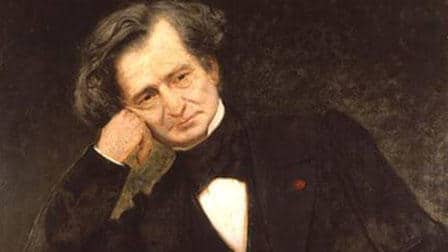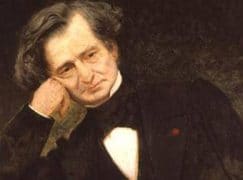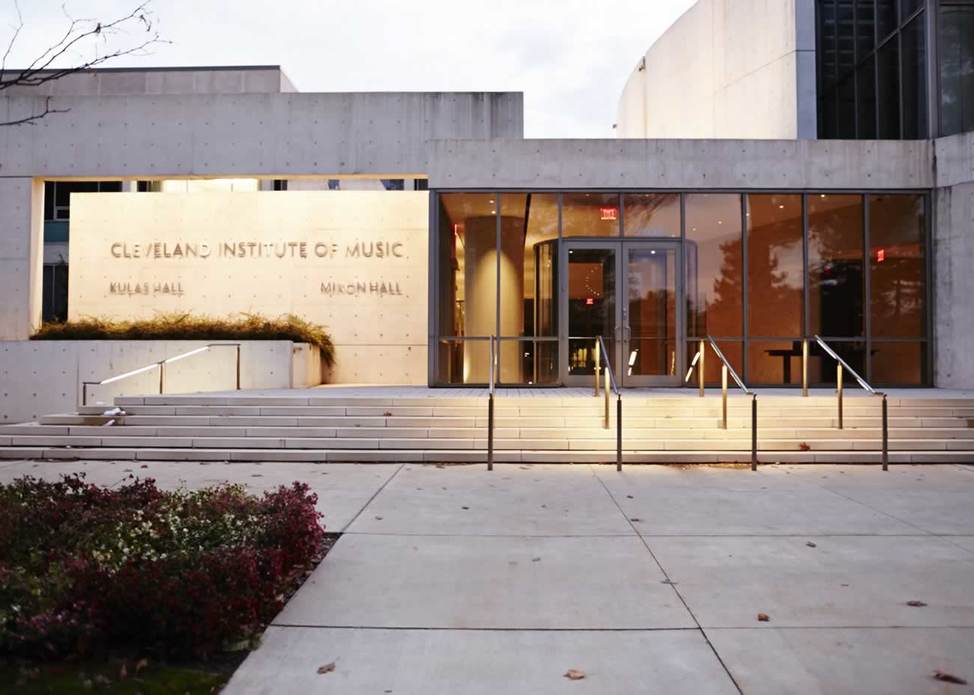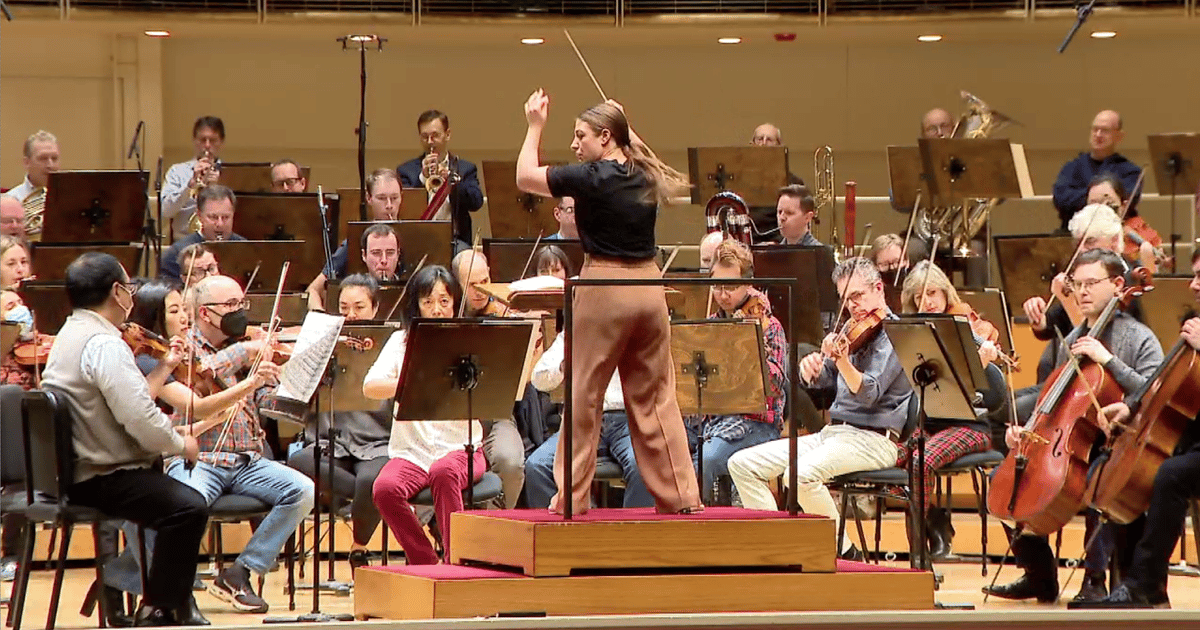Berlioz would have been ashamed of this
mainChris Morley’s review for Slipped Disc of the latest online concert in the CBSO100 season:
Over half a century ago Hugh Macdonald. one of this country’s leading Berlioz experts, wrote in a BBC Music Guide that the composer had described his Rob Roy Overture as “long and diffuse”.
“And so it is,” confirmed the critic. “It should never be performed before an audience who are not wholly aware that Berlioz was ashamed of it.”
Rob Roy is a rarity in the concert-hall, but Symphony Hall gives it socially-distanced room-space for this latest streamed concert by a reduced CBSO. And in fact Berlioz was brutally honest with himself, and Macdonald right to quote him, and to repeat it in his lengthy article in the New Grove Dictionary of Music and Musicians.
Even in this willing, muscular performance under Michael Seal’s eloquent conducting this emerged as a disproportionate, sagging and over-long piece. The Scottishisms are quaint, and we do get some wonderful precursors of music which Berlioz would lift for the much more acceptable Harold in Italy (why waste a good idea). But then again there are other Berlioz overtures as unconvincing as this.
We moved to central Europe for Ravel’s Tzigane for violin and orchestra, soloist Eugene Tzikindelean describing it in a pre-performance interview with Seal as “an encompassing piece of the violin repertoire”.
Certainly its gipsy context demands plenty of panache from the violinist, with flourishes of pizzicato, fluting harmonics and spectacular multiple-stopping, all of which Tzikindelean conveyed with impeccable intonation, deep throaty tone in the extended G-string cadenza, and an astute delicacy and clarity of articulation. Seal (who has previous in this piece, once having broken his violin during a lesson on it) led the CBSO in a totally sympathetic collaboration.
Conducting from memory, Seal presided over a remarkably energising account of Beethoven’s ineffable Seventh Symphony, with a wonderful balance between harmonic context and rhythmic drive.
Horns rasped proudly in the opening movement, the slow movement built to emotional heights (or, conversely, dug into emotional depths), and the clarity of the bass triplet-line under the upper dactyllic rhythms was spectacular, even on puny computer sound. The scherzo was bustling and precise. And here I pause.
There had been an illuminating discussion beforehand between Seal and principal clarinettist Oliver Janes, the latter referring to an occasion in Germany when Andris Nelsons had done an immediate “attacca” between the third and fourth movements (I was there, when the CBSO performed all nine symphonies at the Bonn Beethovenfest).
But Seal didn’t do this for this performance, though I am convinced it needs it, as the pulses of the third and fourth movements are identical. Never mind; the swift, demanding tempo he chose for this music of the dancing spheres was brilliantly encompassed, and all of this, despite imaginative camera-work, without the adrenaline of a live audience and no applause at the end!







“the much more acceptable Harold in Italy”
“there are other Berlioz overtures as unconvincing as this”
“done an immediate “attacca” between … movements”
What a nitwit!
It’s his opinion. Yours may differ. That doesn’t make it superior.
That opinion is given without a thought-through argument, just bubbling-up like indigesting noises. Especially the term ‘acceptable’ shows him up as a superficial and arrogant typical nitwit critic, usually someone without any musicinaship.
I’ll say a goodish word for Rob Roy — try Gibson’s recording before you write it off completely.
Thanks, and it is good to be reminded of Alexander Gibson.
Having worked with him for ten years, it is hard to forget him (for a number of different and varied reasons)
Do tell?
Agreed, Derek, about Alexander Gibson. He transformed the SNO from a rather lackadaisical band (under Hans Swarowski, who wasn’t a good fit) into something really exciting. I first heard Sibelius (the 2nd symphony, I think) under his baton, from the cheapest seats in the upper gallery of Edinburgh’s Usher Hall, and was electrified.
A player I knew in the (R)SNO always felt that Gibson’s immense work in the setting up of Scottish Opera was detrimental to his conducting career.
The whole place needed re-wiring.
Good one, Arnolphe!
One might note that we are still discussing the Rob Roy overture 190 years after it was written, whereas the half-life of a music review is measured in days.
Regarding his Rob Roy overture, Berlioz went further than self-criticism (‘long and diffused’): he ‘withdrew it’ right after the premiere.
Of course it is desirable for an audience to know that fact, as well as the broader context.
There is still value to be also exposed to what is flawed in the oeuvre of any artistic genius (Beethoven also has a few Rob Roys..).
I’d have loved to be in attendance for Barenboim + Paris Orch + 250-strong chorus performing Berlioz’s unhinged rendition of the Marseillaise four decades ago.
Or just listening to the surviving excerpts from his unfinished opera Les francs-juges — for which I am not aware of any performance since Colin Davis’ at the BBC radio six decades ago…
Four decades ago (!) I did hear the Berlioz “Marseillaise” with Barenboim + orchestra + chorus. Unforgettable. The French chorus, trained by Arthur Oldham, absolutely erupted on the words “Marchez!, Marchez!” (rather than “Marchons!”)
I just listened to Dutoit’s recording of Rob Roy. It’s a flawed work, for sure, but enjoyable nonetheless. There are better pieces I enjoy less (which comment can be applied to any number of works of course.)
Try Davis’s magnificent Dresden recording (RCA). He omits it.
I agree with you 100% It is a flawed work, somewhat flabby from the perspective of form but I enjoy it immensely. In fact, it is my favorite piece by Berlioz, flaws and all. Far from his best piece, but my favorite nonetheless.
The true beauties must have some flaws, ohterwise one gets bored quickly. That is also the case with people.
‘Long and diffused’ would be a good description of most works by Walter Scott!
It is so terribly frustrating that the best works of Berlioz are so seldom performed and remain little known.
What a pity Berlioz had such a low opinion of his ‘Rob Roy’ Overture. I’ve always rather liked it…
“you’re so vain, you probably think it’s about you” 🙂
Berloz’s best work is “Les Troyens”.
Berlioz is one of those composers who is really performance-dependent.
A great conductor can make his music sound great, but Berlioz is certainly not as “self-rising” as, say, Beethoven.
I can still enjoy certain things in mediocre performances of Beethoven, but Berlioz in such performances sinks without a trace.
The reason is, I think, that under the surface of the brilliant virtuosity Berlioz’ music is rather dry and sometimes even completely empty.
Sometimes you see a comparable surprising emptiness with very extravert people.
I must be lacking in taste as I find Rob Roy a thrilling piece – and most interesting as it uses thematic material that was to appear later in Harold in Italy. Strangely enough, Colin Davis did not include this in what Philips marketed as the complete orchestral works of Berlioz. I had to make do with a very old Pye LP, on which it was conducted by, would you believe it, Sir Adrian Boult. There’s also a Supraphon recording somewhere on my shelves but the Gibson recording is, as mentioned above, excellent – a marvellous Chandos CD with other Berlioz recordings. The Scottish National Overture are on top form.
Naf Arepo mentions the vocal fragments from Les Francs Juges. I recorded these off the air from Radio 3; I seem to recollect that this was much more recently than the 1960s, but it was a replay of the same performance. I always loved the overture and it was most interesting to hear these fragments; pity Berlioz didn’t complete it. I guess Anthony Payne could make a complete three-hour opera out of the twenty minutes or so that we have!
“even on puny computer sound”
A computer can be hooked up to as good a sound system as you can afford. to good effect. Even a £50 Bluetooth speaker will hit your laptop’s internal speakers for six.
Whats the best recorded performance of Symphonie fantastique? I’ve not found an answer on this, yet.